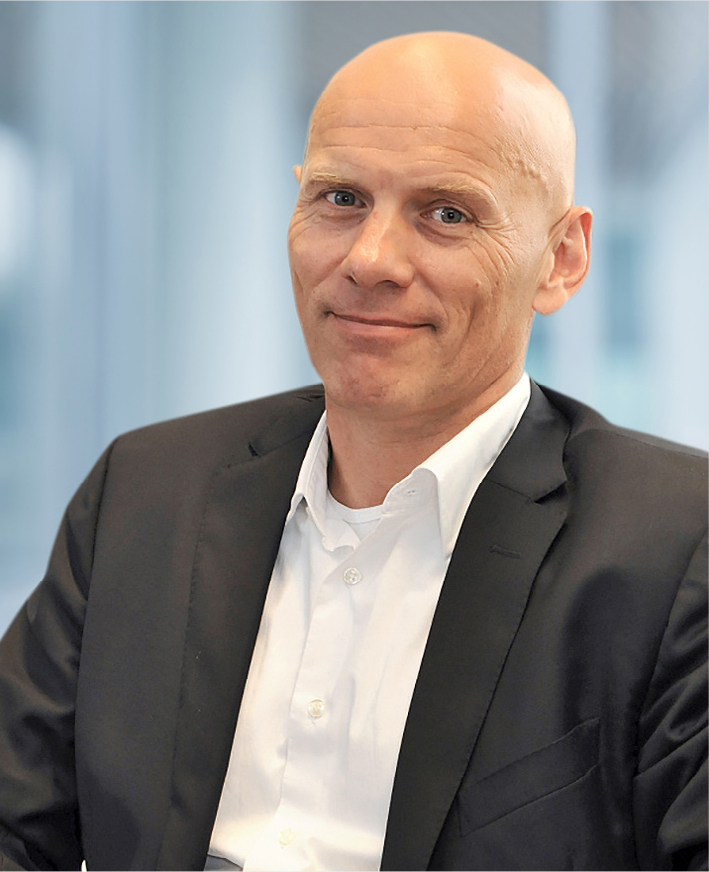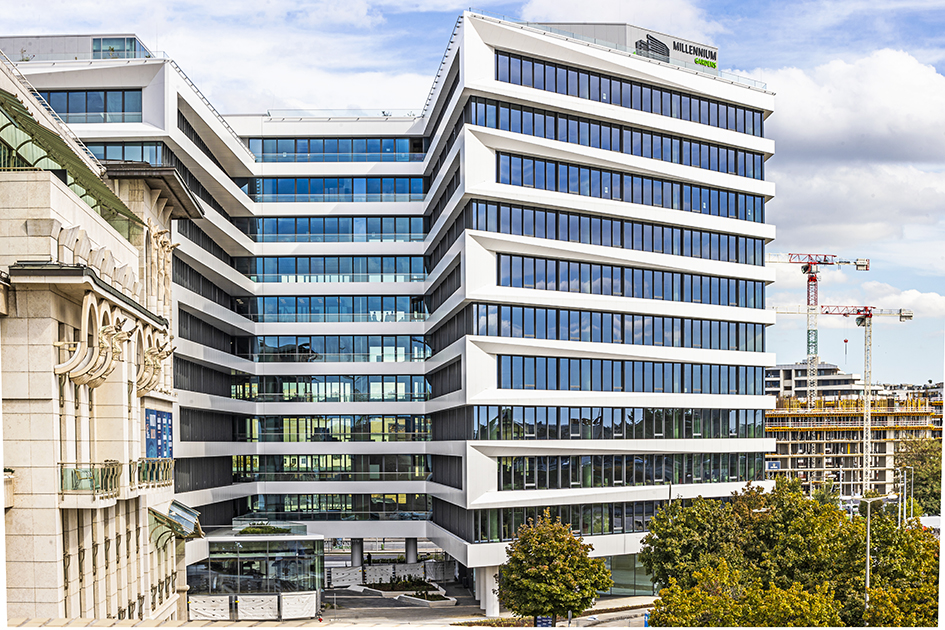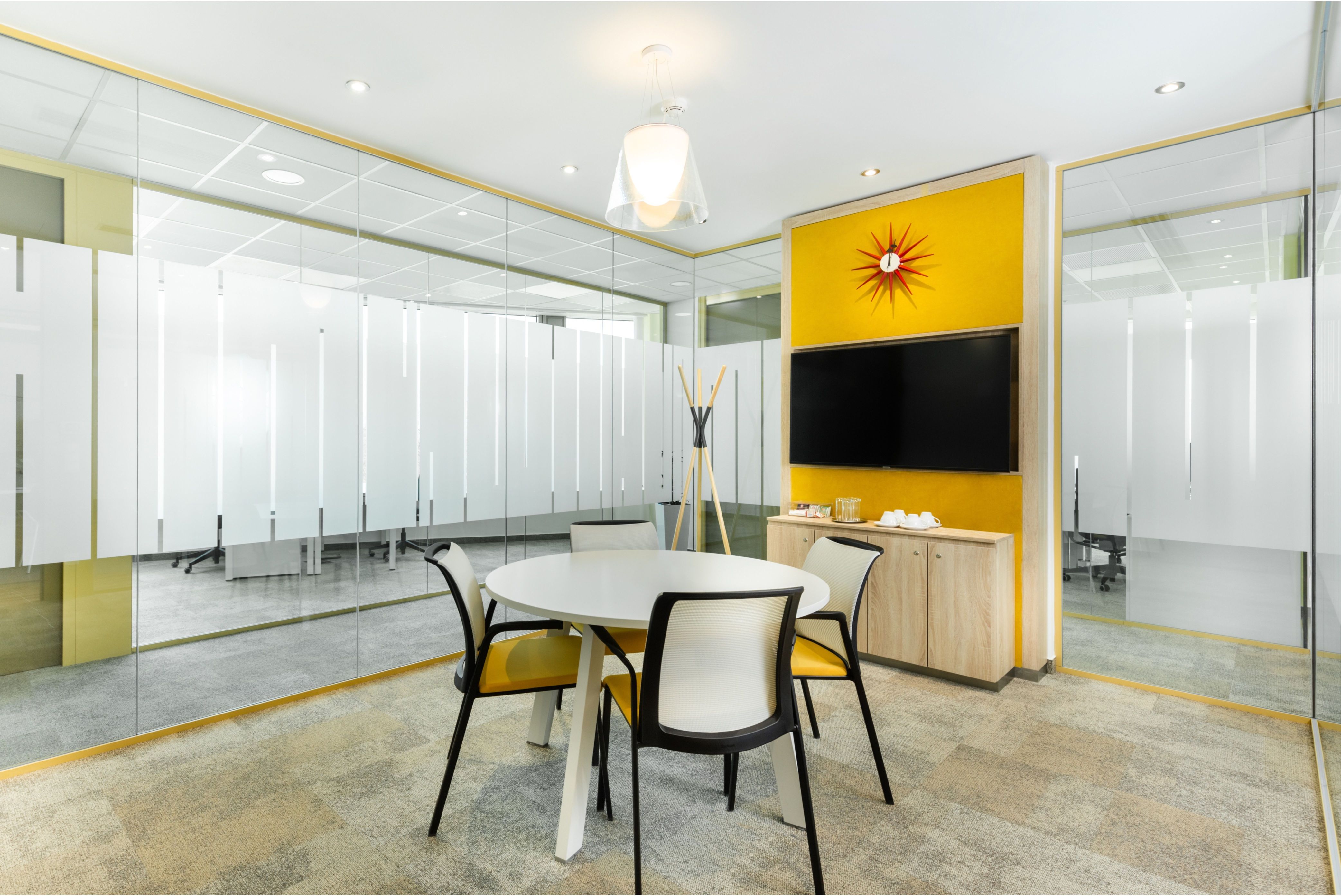Market Talk: Development in a Post-COVID Hungary

Image by ImageFlow / Shutterstock.com
Opinions differ as to how many planned development projects are going ahead in a changing market environment regarding financing, leasing, sustainability, design, and investment. Budapest Business Journal real estate editor Gary J. Morrell spoke with leading actors in the local commercial real estate market about its prospects and the issues impacting development in the various market sectors post-COVID.
Atenor saw uninterrupted development activity during the COVID period and is planning to continue as before. Three of our projects (Váci Greens “E” and “F” and Aréna Business Campus “A”) were handed over during 2020, all of them on schedule, and we have three further office developments under construction: Aréna Business Campus “B,” RoseVille (both with a handover date of Q3 2022) and BakerStreet “I” (handover Q1 2023). In addition to the above, there are two other buildings at Aréna Business Campus and the second phase of BakerStreet in the pipeline; the search for new development opportunities is also high on our agenda. We are screening the market for new office and residential development opportunities on an ongoing basis in our preferred locations.
We expect demand to pick up, backed by societal life returning to normal and a robust economic rebound. Companies will have established their own tailor-made balance between old and new ways of working and, therefore, will be able to make real estate decisions on their office needs, so our expectation is that demand will stabilize and start its return to pre-COVID levels.

Melinda Kovács
Development and Leasing Manager
Atenor Hungary
We are still looking at projects that could be repositioned and re-introduced to the market using our skillset and expertise. We do not expect demand to decrease, and this is also supported by the latest market reports, stating that net absorption is still positive.
With the concept of well-being coming to the fore, landlords will not be focusing only on tenants as companies but rather on individuals as end-users. They should provide a user experience that makes working more comfortable and effective. The architecture and interiors will increasingly be about the employees and people-focused design, while sustainability is also an unavoidable aspect already inherent in everyday life.
Due to the challenges of the transforming office market, pre-leases will slow down. Financing is still available on favorable terms for projects with good characteristics at great locations; the major obstacles to development are building material prices and construction costs. The Hungarian property investment market still offers more beneficial conditions compared to Western European yields; therefore, both domestic and foreign investors show continuous interest in this sector.

Csaba Zeley
Managing Director
ConvergenCE
We are still experiencing increasing demand in the logistic sector, especially around the Budapest area, where currently there is a lack of sufficient stock to satisfy demand, but due to the massive pipeline, this will be balanced out in the next 18 months. Our rule of thumb is to start a logistic development when it has reached a 50% pre-lease level, a reasonable target in 2021, but it does not necessarily mean that it will be a BTS [built-to-suit] development.
Sustainability accreditation plays a vital role in design and development. On the one hand, CPI has a strong commitment to sustainability and decreasing CO2 emissions; on the other hand, more potential occupiers include sustainability requirements in their RFPs [requests for proposals]. I do not see a significant change in demand for improving building design and specs. Of course, a standard quality has to be met, but rental fees and service charges are still the main driving factors, and if you develop a logistic property with above standard specs, tenants will feel it on the cost side.

Mátyás Gereben
Country Manager
CPI Hungary
From a travelers’ point of view, we could already experience demand coming back in the summer in Budapest and the countryside; people seemed to crave holidays after the lockdowns. From an investment market point of view, potential buyers are also back after a long break, but, at the moment, they are more window-shoppers rather than actual buyers.
We expect a couple of Budapest hotels to trade this year and possibly more in the first half of 2022, but the investor demand we experienced back in 2019 is still far away. Foreign investors are looking for downtown flagship properties, but owners are not forced to sell these at a discount yet. Domestic investors are also actively looking at Budapest but also outside Hungary. Many investors are focusing on resort-type hotels as the next asset class to have in their portfolios as the pandemic has shown that there is traveler demand for these holidays.
We see a lot of development activity in the near future. The ex-Buddha Bar hotel is under renovation, W (at the former Ballet Institute building) will open soon, the Autograph project in Dorottya utca is on schedule, and there are plans for Sofitel and Gellért to be fully renovated. But those properties that are in the development phase and where construction has not started are mostly on hold. Owners are trying to figure out what to build and how to operate.

Péter Takács
Partner
Cresa Hungary
After a quiet period on the developer’s market, wherein CTP remained increasingly active, supply is finally reaching a level adequate to fulfill the current market’s demand. By the end of 2021, CTP will have handed over 274,000 sqm of new modern stock, most of which is already pre-leased; all are expected to be fully leased by handover.
CTP has a solid speculative background in Hungary and the region. We can combine both speculative and built-to-suit developments as we can adapt our 50% ready products to tenants’ needs. Similarly, our finished facilities can also be tailored to a company’s needs. For example, Lenovo’s first European factory in CTP’s Industrial Park at Üllő started as a storage facility.
The market is characterized by rising land prices, a lack of immediately developable land, long development processes, rising construction costs, capacity, and shortages of raw materials, which are challenges for all market players. Notwithstanding this, our buildings are finished on time, we have not exceeded our projected costs, nor have we increased rents.

Dávid Huszlicska
Country Head
CTP Hungary
We are continuing with our development strategy as planned but considering and adapting to the new and ever-changing tenant requirements and recent market trends.
Demolition works for our new ParkSide Offices project have already been completed, and we are planning to start construction in the first half of 2022. Besides this, we are also preparing a logistics project in Szigetszentmiklós.
We see on the one hand the better-than-expected COVID-19 related remote or work from home experience for many companies, and the economic consequences of the pandemic imply fading demand. On the other hand, the recovering economy and the post-COVID work environment, emphasizing collaboration, distancing, and inspiration, point in the direction of growing demand. On balance, in the coming year, we expect slightly decreasing demand.
Office developers and owners need to provide everything that is sustainable, green, or supports productivity and helps employees feel better in their workspace, making them want to come back to the office. As far as interior design is concerned, we will probably see a significant impact. We believe that the new office will be even more tailor-made and tenant-specific, with collaboration areas shifting even more into focus.
The main obstacles for developers in the different market sectors are uncertainty, soaring construction costs, bureaucracy, frequently changing legislation, too much involvement of politics even in single developments, and tightened financing conditions. Hotels are struggling with the slower recovery of international tourism and various travel limitations on top of these issues.

Tamás Ádány
Business Development Director
Horizon Development
We see delayed office development plans that have not been announced yet, mainly from smaller players. Big players are still bullish, as long they can cover equity requirements from lending banks with cash. Office demand will decrease in the coming year, and 20% vacancy will be the norm in all markets.
Office developers and owners need to provide one-stop-shop concepts in entrance halls and fully digitized spaces to provide a hybrid workspace and comply with ESG Compliance. Contactless entrance and digital booking systems will be needed for all sorts of services, including elevators and restaurants. More sensors will be required, with flexible space and conference space for walk-ins part of the design concept. Sustainability accreditation issues are very central as, with no ESG certification, there is no finance and no new leases from corporate tenants.

Hubert Abt
Founder & CEO
New Work
This article was first published in the Budapest Business Journal print issue of October 22, 2021.
SUPPORT THE BUDAPEST BUSINESS JOURNAL
Producing journalism that is worthy of the name is a costly business. For 27 years, the publishers, editors and reporters of the Budapest Business Journal have striven to bring you business news that works, information that you can trust, that is factual, accurate and presented without fear or favor.
Newspaper organizations across the globe have struggled to find a business model that allows them to continue to excel, without compromising their ability to perform. Most recently, some have experimented with the idea of involving their most important stakeholders, their readers.
We would like to offer that same opportunity to our readers. We would like to invite you to help us deliver the quality business journalism you require. Hit our Support the BBJ button and you can choose the how much and how often you send us your contributions.








